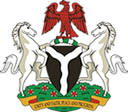The NBS website is set to undergo scheduled maintenance and will be temporarily unavailable from:.
- December 4th, 12:00 AM - December 5th, 11:59 PM.
- We apologise for any inconvenience this may cause.
- For urgent inquiries, please contact us via our social media handles.
Thank you for your patience.

